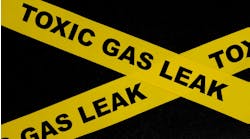Our industry too often has learned lessons about process safety the hard way — by evaluating what went wrong after a disaster. Such analysis can provide insights that can improve the safety of many chemical plants. For instance, a final report issued in mid-February by the U.S. Chemical Safety Board (CSB) on an incident that occurred in June 2016 at the Enterprise Products Pascagoula Gas Plant in Pascagoula, Miss., pinpoints the probable cause as thermal fatigue of a brazed aluminum heat exchanger (BAHX) widely used in similar plants. (See: “CSB Cites Thermal Fatigue In 2016 Pascagoula Gas Plant Explosion”).
[pullquote]
The CSB notes that incident stemmed from a major loss of containment in a BAHX. This resulted in release of methane, ethane, propane and several other hydrocarbons. Their subsequent ignition led to a series of fires and explosions that idled the site for almost six months.
“More than 500 gas processing facilities operate across the country and the use of similar heat exchangers is common. Extending the life cycle of equipment at these facilities requires more robust inspection protocols. Operators shouldn’t take the risk of waiting to find a leak because, as this case demonstrates, that leak could result in a catastrophic failure,” warns CSB Interim Executive Kristen Kulinowski.
The CSB believes that improving the safe use of BAHXs requires more-realistic and updated guidance, and recommended that two trade associations share information related to failure hazards of BAHXs from thermal fatigue. That certainly seems sensible.
Indeed, building more awareness of this potential problem is essential. So, too, is maintaining that awareness over time. The late safety guru Trevor Kletz repeatedly lamented (e.g., in “Bhopal Leaves a Lasting Legacy”) that the same mistakes recur because lessons get forgotten.
Three elements underpin effective enduring process safety: performing thorough and competent hazard analyses and promptly addressing issues identified (follow-up too often is inadequate, according to “Foil HAZOP Failings”); maintaining a corporate culture that puts process safety top-of-mind and makes everyone responsible for it (see: “Make Safety Second Nature” ); and broadly sharing best practices and other insights so others don’t have to learn the hard way.
[callToAction]
As part of a personal commitment to process safety, you should strive to keep current on issues, incidents and insights. Fortunately, by regularly checking a few key resources, you can get a good sense of what’s happening in process safety. I suggest that you visit the websites of the CSB, the Mary Kay O’Connor Process Safety Center at Texas A&M University, the IChemE Safety Centre and AIChE’s Center for Chemical Process Safety.
Chemical Processing is another valuable resource. We publish far more process-safety-related content than any other magazine in our field. (Put “process safety” in the search box on Chemicalprocessing.com, and see for yourself how much material we provide.) Moreover, for several years we have presented a series of free process safety webinars in collaboration with the Mary Kay O’Connor Process Safety Center. Details on this year’s webinars can be found here.
Process safety is too important to be left solely to specialists.



